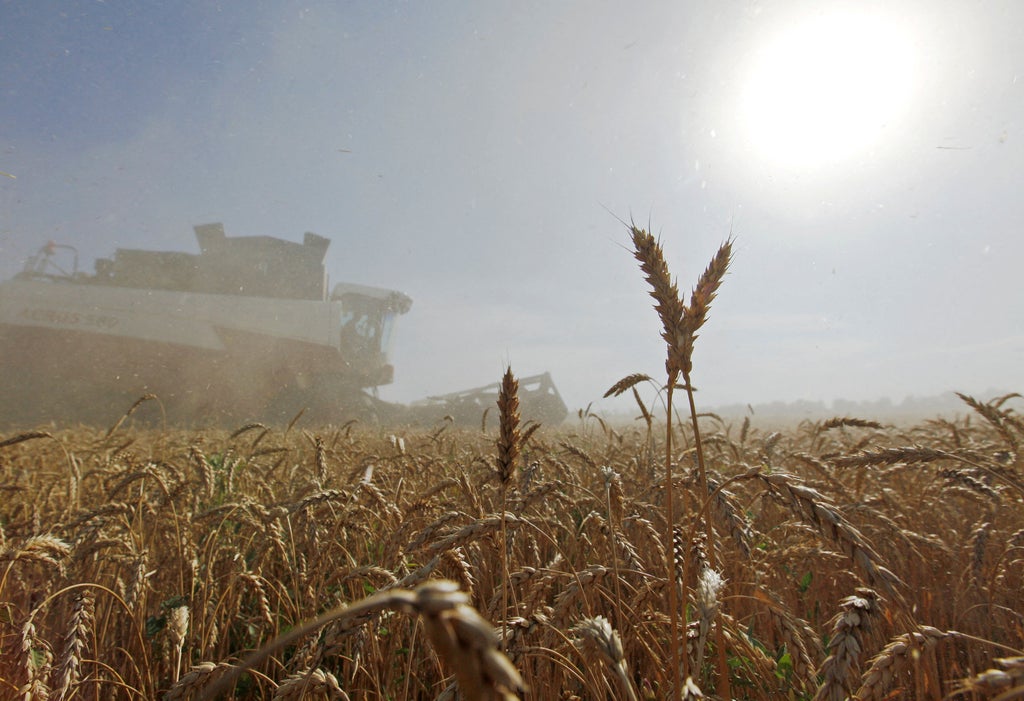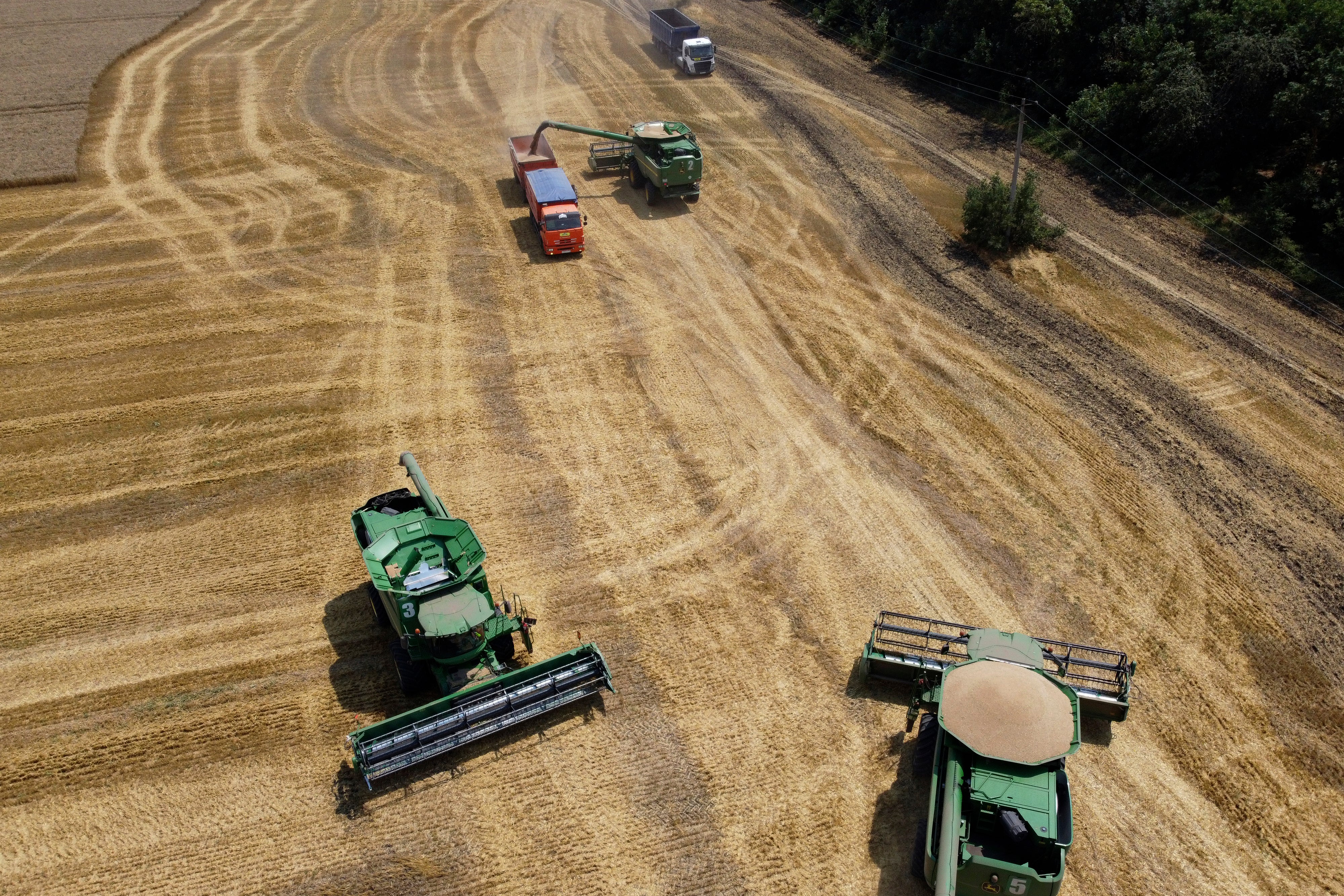
War-torn Ukraine could see the bulk of its grain exports wiped out this year, adding to financial pressure on British households and increasing the risk of food shortages elsewhere.
The country, known as “Europe’s breadbasket”, was expected to account for 12 per cent of global wheat exports and nearly a fifth of global maize production this year, according to figures from ING Bank and the US Department of Agriculture.
Now, commodities analysts and agricultural experts fear that both production and exports will be devastated by Russia’s invasion. International wheat prices have already surged to record highs.
Many of Ukraine’s farm workers have been redeployed to fight on the front lines, while roads and bridges needed for deliveries to farms have been destroyed, and with little diesel to spare for farm vehicles, the country’s crops face a grim outlook.
The country’s ports were closed when war broke out last month.
Harvests often vary from year to year, but economists and commodities experts are scrambling to work out the impact of losing a large part, if not all, of Ukraine’s wheat harvest.
“The longer the hostilities continue, the more significant the impact on crop yields and production will be,” Mike Lee, of Green Square Agro Consulting, told The Independent.
Green Square forecasts crop yields of countries in the Black Sea area, including Russia, Ukraine, Belarus, Romania and Moldova.
Mr Lee has carried out site visits near the Ukrainian border with Poland, and has interviewed Ukrainian farmers, in order to assess the outlook for grain production in the region.

Even assuming a yield of 50 per cent of Ukraine’s wheat – which could prove overly optimistic – that would amount to around 15 million tonnes of wheat post-harvest.
This would mean there is little, if any, left for export after accounting for the roughly 10 million tonnes that usually stay in the country to feed the domestic population, according to Mr Lee.
Still, that also assumes that crops can be harvested at all. Some farmers have reported large pieces of shrapnel in the fields, which could make it impossible to use farm machinery to gather the harvest.
Winter wheat is already planted in the country’s fertile black soil, and is due for harvest in July, though yields are likely to be badly dented by a lack of fertiliser.
The maize crop is normally sown in spring, but only around 60 per cent of the seed required to plant maize has been delivered to farms, Mr Lee said.

“If there is still ongoing fighting by the wheat harvest in July, then very little might be harvested at all,” he added.
Ukraine would normally be expected to be the world’s fourth-largest exporter of maize, and to produce 50 per cent of the world’s sunflower oil.
“Spring planting season is just around the corner, and if the current conflict continues into late spring, it is difficult not to see a large downward impact on corn plantings for the 2022-23 season,” said Warren Patterson, head of commodities strategy at ING, in a note to clients.
“Sunflower seed faces the same risks as corn for the 2022-23 crop, with planting potentially delayed and significantly lower,” he added.
The risk to Ukraine’s crops comes at a sensitive time for the world economy in the wake of the pandemic. Politicians in China, a major importer of Ukrainian grain, have already warned that it faces a poor domestic harvest of winter wheat, adding to supply concerns.
Egypt, the world’s biggest wheat importer, sources around 80 per cent of the foodstuff from Russia and Ukraine. Several more countries across north and east Africa are likely to be heavily affected.
In the past 10 days, several countries have introduced curbs on shipping of some grains and vegetable oils abroad, according to Simon Evenett, professor of international trade at the University of St Gallen.
These include Belarus, Russia and Ukraine, but also Lebanon, Egypt, Hungary, Serbia, Moldova, Algeria, Turkey and Indonesia, Prof Evenett said. Data on food export curbs is being gathered as part of St Gallen’s Global Trade Alert, which catalogued the wave of export limits placed on healthcare products during the pandemic.
Global lender of last resort the International Monetary Fund warned on Monday that Ukraine’s economy could face a drop of at least 10 per cent of its GDP this year, but potentially as much as 35 per cent if the Russian invasion is prolonged.
Agriculture accounts for around 12 per cent of Ukraine’s economic output, according to figures collated in the CIA World Factbook, behind services and industry at around 60 percent and 28 percent respectively.







